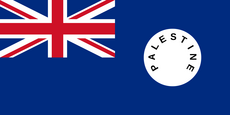| UN Security Council Resolution 42 | ||
|---|---|---|
 Palestine flag | ||
| Date | March 5 1948 | |
| Meeting no. | 263 | |
| Code | S/691 (Document) | |
| Subject | The Palestine question | |
Voting summary |
| |
| Result | Adopted | |
| Security Council composition | ||
Permanent members | ||
Non-permanent members | ||
| ||
United Nations Security Council Resolution 42, adopted on March 5, 1948, called upon the permanent members of the Council to consult and inform it regarding the situation in Palestine and to make recommendations to the United Nations Palestine Commission. The Resolution also appealed to all governments and peoples, particularly those around Palestine to aid the situation in any way possible.
Contents
The resolution was adopted with eight votes to none and abstentions from Argentina, Syria and the United Kingdom.